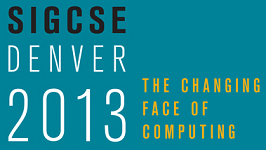I'm trying something new this year: getting my computer science students to participate in March Madness by filling out a bracket on Yahoo. I have 70 students this semester (10 are female), and so far only 6 have joined in. I'm a little concerned that basketball may not be all that popular among my techie students, but I have just hit gold: March Madness explained with Star Wars:
In case you were wondering, who did I pick to win? With nothing but seeding information, preferences to states I used to live in, and a random number generator, I devised an algorithm which picked Louisville over Georgetown. Yes, there are much better ways of picking a bracket.

I'll update this post once the tournament is over and reveal which student(s) beat me.
Update on 3/25/13
Nine students decided to participate. A few others wanted to, but Yahoo produces some pretty lame error messages and is not helpful in redirecting users to the right place to join a league. I'm currently in first place, but considering my overall points possible is much lower than others', my fall in the rankings is assured.

Update on 4/1/13
Due to some big upsets, I've managed to stay on top. I only picked two of the final four (Louisville and Syracuse), but that's apparently much better than most since Yahoo says my bracket is in the top 99th percentile. Thank you, Syracuse. Did you see the poor kid from Louisville break his leg? It was like watching Joe Theismann all over again.

Update on 4/9/13
Louisville's impressive win over Michigan secured my first place finish. Had Michigan won, one of my CS1 students would have been the winner. Yahoo reports by bracket is in the 99% percentile... probably the best bracket I've ever had. However, I don't think my students were quite as thrilled as I was.

